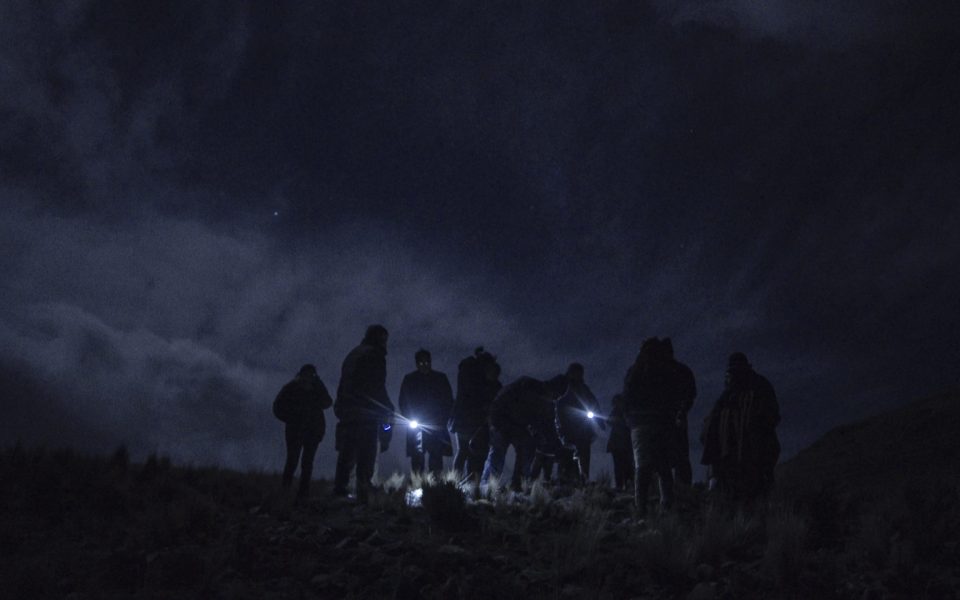Dark Skull screen on Friday at 8:15 p.m. at UNCSA Gold, on Saturday at 8 p.m. at SECCA and on April 2 at 4 p.m. at Aperture 1.
Dark Skull, the first full-length feature by director Kiro Russo, might have single-handedly put Bolivian cinema on the map, earning the top prize for best picture from the Cartagena Film Festival in early March. The slow pacing and subtle narration might elude some American viewers, but the sublime visuals of the subterranean latticework of tunnels, chambers and shafts of the film’s focal point — a mine — will be utterly transfixing.
With flickering lights in the inky darkness and giant drills sloshing through water and assaulting the rock, the setting is at first ominous and laden with danger, yet the mine eventually comes to feel like a protective cocoon. The mining village, which is rarely shown in anything but nocturnal gloom or pre-dawn grayness, is scarcely less claustrophobic, and the camaraderie of the men underground contrasts favorably with the isolation and poverty of their wives, sisters and mothers in this work of fiction.
The mine and the village as its aboveground corollary provide a stage for a big story about death and grief, maturation and masculinity, resentment and reconciliation to play out. The story revolves around Elder, a young man who reacts to his father’s death in the mine by vaulting into a frenzy of drinking and thievery. It seems both inevitable and tragically cyclical that Elder winds up in the mine under the tutelage of his father’s friend, Francisco, as the only option available for setting him on a straight path. Elder’s gradually heightened awareness about a secret Francisco is keeping about his father’s death propels the plotline.
The relationship between the two men is only part of the story’s appeal. The other miners dislike Elder’s absenteeism and disrespect, and resent the fact that Francisco seems to have pulled some strings to get him on at the mine. The collective is important in a setting where men depend on each other for survival, and the tensions between the two men reverberate into the group in fascinating ways. Ultimately, the constrained nature of their lives seems to suggest that they will cope with their conflicts and never completely resolve them.
— Jordan Green
Join the First Amendment Society, a membership that goes directly to funding TCB‘s newsroom.
We believe that reporting can save the world.
The TCB First Amendment Society recognizes the vital role of a free, unfettered press with a bundling of local experiences designed to build community, and unique engagements with our newsroom that will help you understand, and shape, local journalism’s critical role in uplifting the people in our cities.
All revenue goes directly into the newsroom as reporters’ salaries and freelance commissions.


Leave a Reply